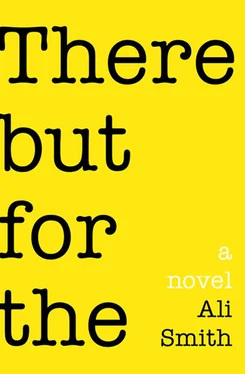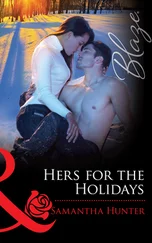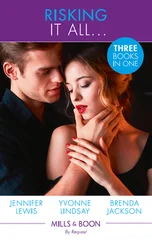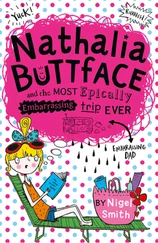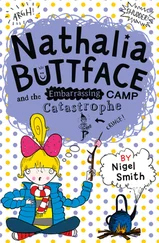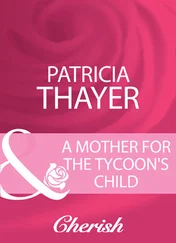Oh, aesthetic reception, Richard says.
Shut it, Rich, Hugo says.
Why did she? Caroline says.
History Sequence 1 to 9, they’re called, Terence says. You must know them. You will, you’ll have seen them.
And how did she? Caroline says.
I’d know if I’d seen one. They sound really disgusting, Hannah says.
You’d absolutely know if you saw one in real life, Bernice says. You can’t not. They’re unforgettable. They’re shocking to the core. But also, they’re really shockingly beautiful.
No way, Hannah says.
They are, Bernice says. They just are.
You wouldn’t take your child to see one of those pictures, though, would you? Jen says.
Our child sees worse things every day on TV, Terence says. She just needs to type a couple of words into a computer to see things every bit as bad, and, worse, to see them as if she’s not really seeing them. Seeing a picture like one of Palmer’s is very different from seeing something atrocious on a screen. There is no screen. That’s the point. There’s nothing between you and it.
And to leave a child, Caroline says. What a choice. It’s unthinkable.
Unthinkable just to leave your own self. Think how robust your own heart feels, and your arms, and your legs feel, someone (it must be Eric) says.
Very selfish, Hugo says.
Most difficult thing in the world, Caroline says.
I’m amazed you’ve heard of her. I’d never heard of her, Hugo says.
But you’ve seen her, Bernice says. You will have. You’ve seen her without seeing her. She’s hugely influential, she was hugely important in the ways artists, especially women, came to treat history and to examine how history had treated them. And you can see so clearly now too with hindsight, how they parallel Bacon, practically initiate the post-war self-infliction artists of the 1960s and 1970s, and even, in their colour planes, anticipate Hockney.
That’s not possible, Bacon and Hockney together, Hugo snorts.
Trust me. They do. They do both, Bernice says.
Faye Palmer’s son, Terence says.
Oh God, Jen says. Jewish. And I served him pork.
Bacon and Hock, Richard says. Ha-ha!
Yes but he ate it, Jen, Caroline says. He’s probably one of the ones who don’t mind what they eat.
Mark stands just beyond the door.
In his muscles he is thirteen years old and the hush is about to happen all over again, will happen in a moment’s time when, small, thin, in the still-too-big blazer, he’ll enter the prep-room full of boys at St. Faith’s, and no longer be just the Jewish one, like Quentin Sinigal is the coloured one. Now that the inquest has been in the paper and everybody knows, he’ll also be the one whose mother — like in the old joke about Jamaica, whispered behind his back for months and months to come (in fact there will literally be years of this whispering) — went of her own accord.
He glances back up the stairs. He can see the closed door.
The nice chap, Miles, is safe behind it.)
Say that a man is fully formed by not / just what’s remembered also what’s forgot Mark sat on the circular bench at the gate of the park. It was a warm October day. What would he remember from his visit to the Observatory today? A seagull had walked across the grass at the edge of the park on the tiny white table in the turret that’s been curtained off to make the Camera Obscura. He’d enjoyed that somehow more than seeing a seagull in real life, he thought now, as he sat and watched another real seagull walk across a strip of grass right in front of him.
Say that the berries on a tree fermented / say that some birds ate them got drunk demented / couldn’t fly straight flew straight into instead / wall of an office block and fell down dead / down on the pavement people undeterred / stepping over the mound of broken bird Mark sat on the bench on a Thursday in October in 2009. Forty-seven years ago today, to the day, he is standing in the lounge of Aunt Kenna’s house. It is a couple of days since he was moved in. He has drawn the short straw. David got Aunt Hope, his father’s other, nicer, sister, and was moved in to Aunt Hope’s house on the other side of town a couple of days ago too.
Everything is so neat it’s a kind of proof, though he’s not yet sure what of. The sizes of the chairs in the lounge, new to the backs of his legs, are a kind of proof. The foreign fall of the cloth on the table is proof. The dark wood furniture in the room is proof. The wooden curve on the side and the top of that cabinet thing where Aunt Kenna keeps the drinks, and which gives off the smell of acridness and plush when you open it, which you can only do if Aunt Kenna doesn’t know it’s what you’re doing, is proof.
His suitcase is in the spare room.
The note his mother left is in the suitcase.
In a house-move roughly seven years from now, when Mark will drop in to pick up the stuff that’s still at his aunt’s, and which his aunt has packed in bags for him, the note will get mislaid, and will be given away to a junkshop in the ribbing of what Kenna thinks of as an anonymous old suitcase. Because this happens at a time in his life when Mark is angry with his mother for doing what she did, he will decide not to go after it, not to go to the junkshop to try to find it again. By the time he is ready to want it again, the note, Aunt Kenna is dead and there’s no way of finding out even which shop she gave the suitcase to all those years ago.
It says, in the dash of her handwriting, on a sheet of Basildon Bond:
Button up your overcoat.
Take good care of yourself.
You belong to me.
That’s all. Nothing else. It isn’t addressed. His father doesn’t know about it. Nobody knows about it. Mark found it on the desk of the open bureau, detached it from the pad along with the three sheets underneath which bear the imprint of the words and packed it without showing anybody.
Her writing is her.
Even the imprints.
He will never know whether this note was meant for him, or David, or for them both, or for nobody at all, just his mother scrawling down something she might want to think about later.
His aunt has an ancient pug called Polly. The pug’s face looks ruined, melted. It looks like what Mark thinks the word tragedy would look like if it were a physical reality, a thing not just a word.
Right now the pug is sitting lumpy in the doorway, looking out on to the yard where Mark’s aunt is what she calls dealing with a fledgling thrush which has fallen out of a nest, can’t fly, and has been there, square, dense, idiot, all afternoon, on the cobbles. There are lots of cats round here so his aunt is putting it out of its misery before a cat does.
But Aunt Kenna—, Mark said.
Aunt Kenna waved him away.
It was the pug found it first; Mark saw it circle the bird, curious, benign. It was so tired, the baby bird, of just sitting there on guard, that its eye kept lidding over.
Will the bird’s parents, which are clicking and squawking above the yard, miss it when it dies?
Animals, Mark, have no use for nostalgia, Aunt Kenna says. It is not a tool for survival, my darling.
But Mark has seen the pug, on a walk, pick up a stone in its mouth and carry it for a little of the walk before putting it down, and then on the way back home again stop to find the same stone and pick it up to carry it some of the way back.
Forty-seven years later Mark could, if he’d chosen to, have called to mind the face of the pug, the dark of the lounge, the ebony cigarette-holder so often in the mouth of his aunt at this time in her life. But of this particular day, this moment, in this room with the resolute tick of its clock and the noise of birds outside, what did he remember?
Читать дальше
